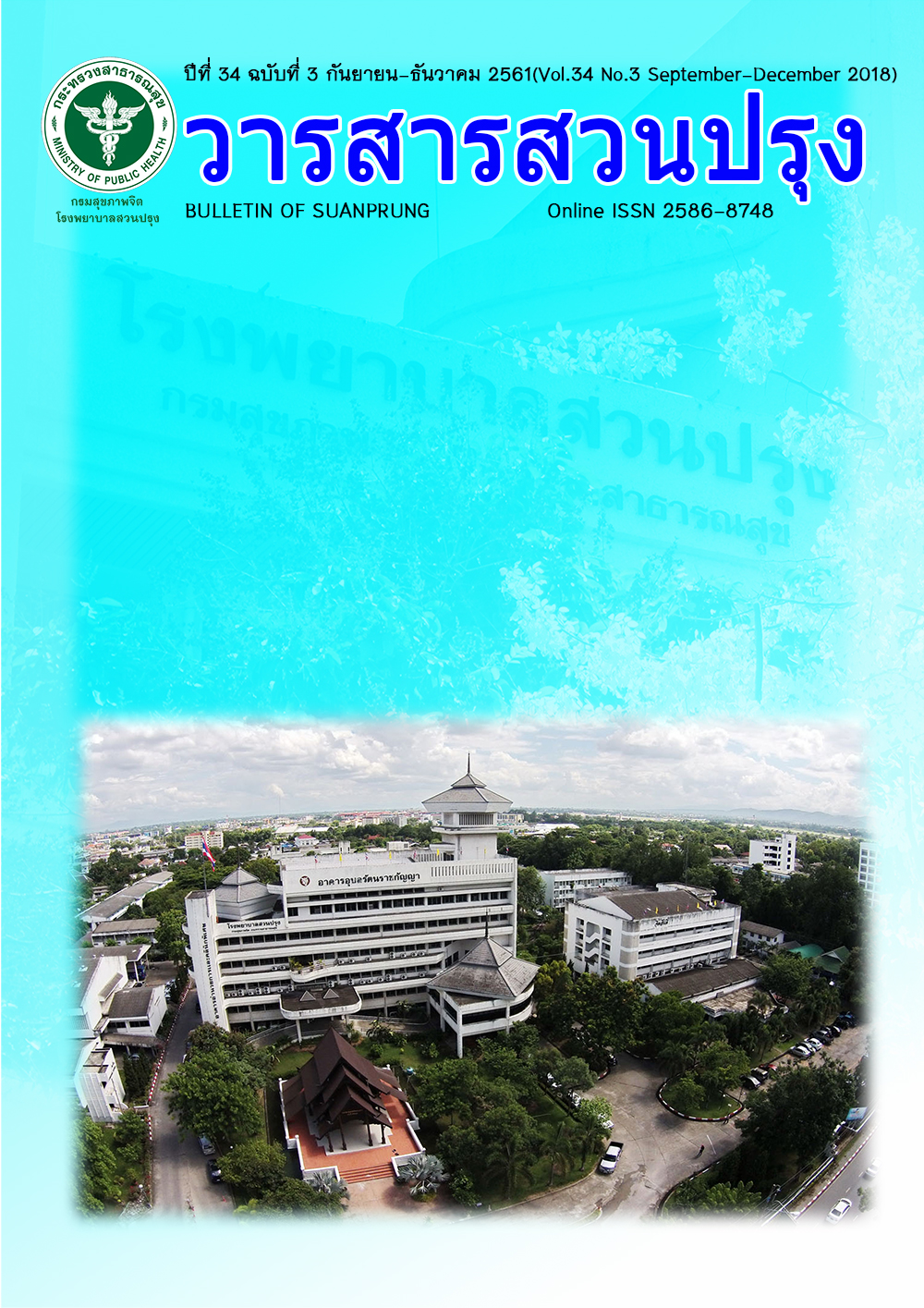Needs of patients at end-stage and the healthcare providers’ response at the inpatient department, Sansai Hospital, Chiang Mai Province
Main Article Content
Abstract
บทคัดย่อ
การวิจัยเรื่องความต้องการและการได้รับการตอบสนองความต้องการของผู้ป่วยระยะสุดท้ายต่อการดูแลในแผนกผู้ป่วยในหญิงโรงพยาบาลสันทราย วัตถุประสงค์เพื่อศึกษาความต้องการ วิธีการดูแล ความสอดคล้องระหว่างความต้องการและการได้รับการตอบสนองความต้องการของผู้ป่วยระยะสุดท้ายและเพื่อพัฒนาแนวทางในการดูแลผู้ป่วยของโรงพยาบาลสันทราย ศึกษาในแผนกผู้ป่วยในหญิงโรงพยาบาลสันทราย อำเภอสันทราย จังหวัดเชียงใหม่ ด้วยวิธีการศึกษาเชิงคุณภาพ กลุ่มตัวอย่างผู้ป่วยระยะสุดท้ายและผู้ดูแลจำนวน 18 คน เครื่องมือในการเก็บรวบรวมข้อมูล ใช้การสัมภาษณ์เชิงลึก การสังเกตอย่างมีส่วนร่วมและเครื่องบันทึกเสียง ตรวจสอบข้อมูลด้วยวิธีการตรวจสอบสามเส้า วิเคราะห์ข้อมูลโดยใช้เทคนิคการจัดหมวดหมู่ การตีความและการสร้างข้อสรุป
การศึกษานี้พบว่ามีปัจจัยด้านต่างๆที่ส่งผลต่อการตอบสนองความต้องการของผู้ป่วยระยะสุดท้าย ได้แก่ การรับรู้ข้อมูลเกี่ยวกับโรค การวินิจฉัยโรค การพยากรณ์โรคและการวางแผนการรักษา วิถีการดำเนินชีวิต ภูมิหลัง ความสัมพันธภาพและความสัมพันธ์ระหว่างผู้ป่วยระยะสุดท้ายกับผู้ดูแล เศรษฐกิจ(ฐานะ)ของครอบครัว ความพร้อมของครอบครัว ความหวังและความต้องการของผู้ป่วยระยะสุดท้ายและผู้ดูแล มุมมองของความตายและการเผชิญการวาระสุดท้าย ผลกระทบของการเจ็บป่วย และการดูแลของทีมสุขภาพ
นำผลการศึกษาคืนให้กับทีมสุขภาพ เพื่อร่วมกันวางแผนการดูแลผู้ป่วยระยะสุดท้าย ได้มีการปรับปรุงแนวทางการดูแลมีการแต่งตั้งคณะกรรมการในการทำงานที่ครอบคลุม สหวิชาชีพและทุกหน่วยงาน จัดทำแผนพัฒนาองค์ความรู้ให้กับบุคลากรทุกระดับ มีการเชื่อมโยงเครือข่ายสุขภาพระดับอำเภอสอดคล้องกับนโยบาย
ประเด็นสำคัญ : ความต้องการ; การตอบสนองความต้องการ; ผู้ป่วยระยะสุดท้าย
Abstract
The purpose of this study aimed to identify needs of patients at the end of life and providing care by health care providers for further development of care planning at end of life stage. The study was conducted in In-patient unit, Sansai Hospital Chiangmai Thailand using the process of qualitative research .Data was collected by in-depth interview, observation and collecting data verification of information through triangulation. A total of 18 participants comprised of 7 end of life patients who admitted at inpatient unit, Sansai hospital and 11 their care givers.
The study found positive factors and negative factors that affect the quality of care at the end of life i.e. patient perception on disease and dying, prognosis, plan of treatment, characteristics of pain or other symptoms. Psychosocial factors are patients and families preferences, cultural and economic backgrounds, relationships with family member providing care and support, and the treatment approach.
The result was given feedback to multidisciplinary health care team to develop a team from all health professional in hospital and primary-care unit, and improving end of life care approach according to the health care policy.
Article Details
บทความหลังผ่านการปรับแก้จากกองบรรณาธิการแล้ว เป็นลิขสิทธ์ของวารสารจิตเวชวิทยาสาร โรงพยาบาลสวนปรุง กรมสุขภาพจิต กระทรวงสาธารณสุข ห้ามเผยแพร่เพื่อประโยชน์ทางการค้าโดยไม่ได้รับอนุญาต แต่อนุญาตให้เผยแพร่บทความดังกล่าวเพื่อประโยชน์ทางการศึกษาแก่ประชาชนทั่วไป ทั้งนี้กองบรรณาธิการไม่จำเป็นต้องเห็นด้วยกับบทความหรือข้อคิดเห็นใดๆ ที่ปรากฏในวารสารสวนปรุง

